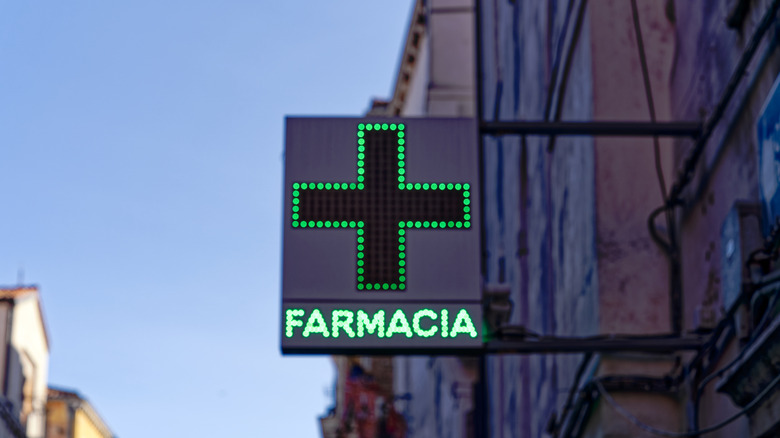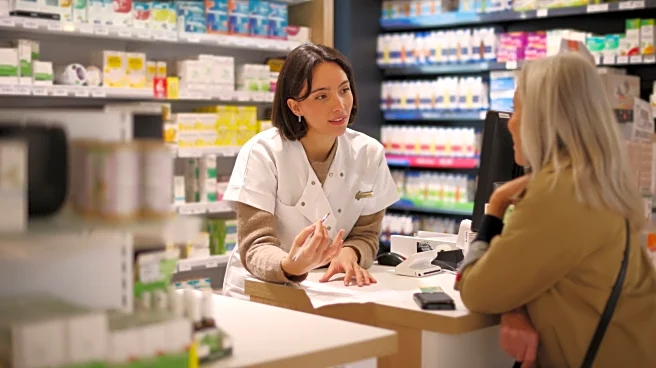
Along with nervousness about flying and worrying about safety, falling sick in a foreign land counts among a traveler's worst fears. You could follow the science on how to avoid getting sick on your next
flight to a T, but what happens if you get sick once you've reached your destination? Fortunately, travel guru Rick Steves has a reassuring tip for European-bound travelers facing this particular situation: Head to the local pharmacy for minor and non-emergency medical concerns.
"Throughout Europe, people with a health problem go first to the pharmacy, not to their doctor," Steves shares in a blog post titled "Getting Medical Care in Europe." All European pharmacists have studied pharmacology and are qualified to diagnose, prescribe, and dispense medicines for minor health issues like sore throats, fever, stomach issues, sinus problems, or insomnia. As the Pharmaceutical Group of the European Union confirms, pharmacists in Europe are highly educated on medicinal products, and the local community pharmacist is therefore a "true expert on medicines."
Unlike in the U.S., where you can help yourself to over-the-counter medicines at gas stations or convenience stores, medicines in Europe are strictly bought at pharmacies, meaning you get access to a pharmacist's expert advice for any ailment or symptoms you may be experiencing as well — a godsend for travelers needing minor medical interventions in a pinch. Steves does stress that, should tourists have a medical emergency in Europe needing immediate attention, it's best to contact hospitals or urgent care immediately.
Read more: Why You Should Think Twice Before Visiting These Dangerous European Destinations
Medication Differences Tourists Can Expect In Europe

Once you've found a pharmacy in Europe, Rick Steves cautions U.S. tourists to be prepared for the discrepancies in European and American medications and dosages. European medicines are likely to be sold under different names, and dosages may also be stronger than what you're accustomed to in the U.S., so seeking a pharmacist's advice on the correct dosage is crucial.
After analyzing 250 active pharmaceutical ingredients across 30 European countries, global data solutions company Clarivate revealed that countries like Germany, the U.K., and Italy have the "highest number of available OTC medicines," so don't be surprised at how certain prescriptions-only medicines in the U.S. are readily handed over to you in European pharmacies without fuss. On that note, some common American meds may be impossible to find abroad, such as Pepto Bismol, a heartburn, nausea, and diarrhea medicine that's banned in France and Denmark for containing the active ingredient bismuth subsalicylate; or NyQuil, whose cocktail of pain reliever, cough suppressant, and antihistamine in one single pill doesn't exist in Europe.
Just as it's good sense on your part to pack the most common medicines for any international trip, it's best to err on the side of caution and take your medical prescriptions along with you, too, just in case. Steves says that European pharmacies are usually good on filling prescription medicines from abroad and will direct you to a doctor or clinic if needed.
Ready to discover more hidden gems and expert travel tips? Subscribe to our free newsletter for access to the world's best-kept travel secrets.
Read the original article on Islands.









